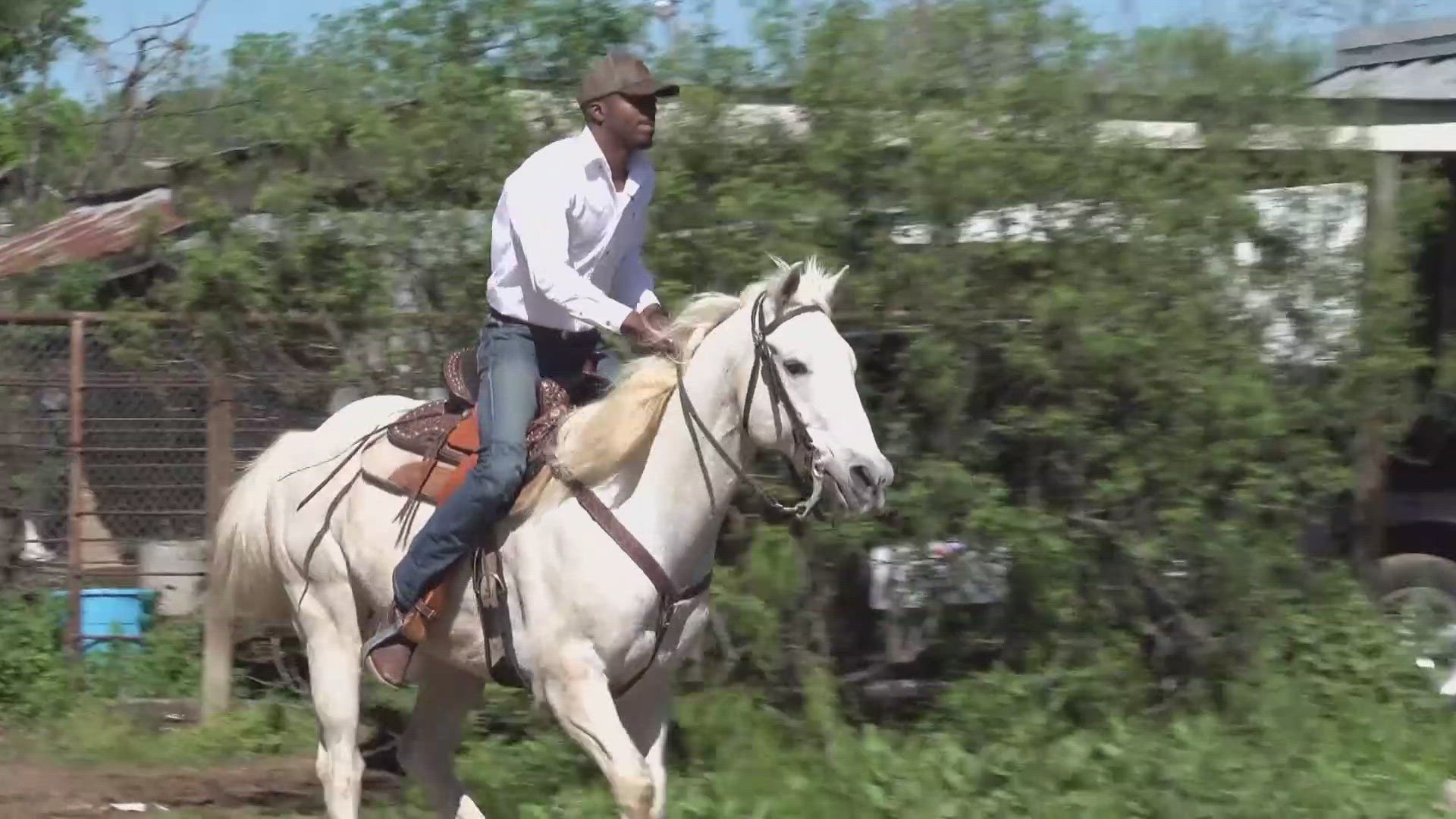FORT WORTH, Texas — Every single day starts the same way for Jarred Howard. With the chickens clucking, he knows it’s time to hit the ground running and get to work.
“It’s always grooming, cleaning, and feeding,” he said as he brushed off his horse named Ghost.
Howard is the owner of 2 R Equine, an equestrian center in Fort Worth.
“I can come out here and shovel poop for eight hours and be perfect,” he said with a chuckle.
Howard is a cowboy; a Black cowboy at that.
He started riding 10 years ago and fell in love with it. For the last two years, he’s taught everything from riding lessons to rehabbing horses through his center.
“This is where I get my high,” Howard said. “You know coming out here even though I’m in the middle of the city, I’m in the middle of nowhere.”
In every class he teaches, in every encounter he has with people, he leaves them with a history lesson Howard says not many people are aware exists: That is how prevalent African-Americans are within the cowboy culture.
The Black cowboy is a key part of American history and Texas history. There are many pioneers like Bill Pickett and Bass Reeves, to name a few. Howard said many black cowboys worked as bronco busters, ropers, and trail cooks.
Through his center, he hopes to not only teach people about the culture, but also show young people how successful a career it can be, and how prevalent it is in our everyday lives.
“This gives those younger generations something to do other than going and dealing dope,” he said.
Deah Berry Mitchell is a historian. Her ancestors are cowboys.
Mitchell said the "cowboy culture" teaches more than just how to rope cattle or ride horses; it also teaches life skills.
“It teaches things like responsibility. It teaches things like an appreciation for nature,” Mitchell said.
She said in the early 19th century, roughly 20-25% of cowboys in the West were Black. Mitchell said this legacy of Black cowboys should continue today.
“We weren’t given our full respects during that time I think today, it’s truly significant to continue that tradition,” she said.
That’s why every day, Howard gets up doing the same routine. It’s his passion and his way of making sure his beloved culture lives on.
If you would like to get in contact with Howard, you can find him on Instagram or email him at booking@2requine.com

